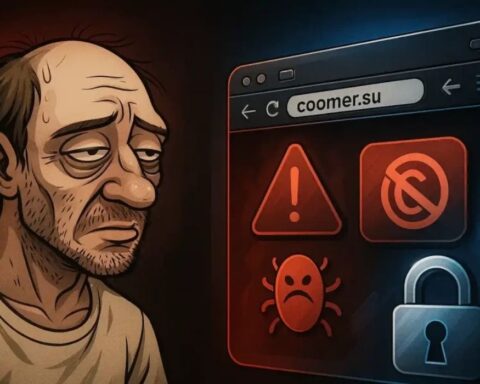When someone is involved in an accident and sustains injuries, they may face medical bills, lost wages, and emotional stress. In such cases, a personal injury claim can help them recover damages from the responsible party. When it comes to resolving these claims, injured parties often face a key decision: Should they accept a personal injury settlement or go to trial?
What Is a Personal Injury Settlement?
A personal injury settlement is a legally binding agreement between the injured party (plaintiff) and the party responsible for the injury (defendant) or their insurance company.
In a settlement, the defendant agrees to pay a certain amount of money to compensate for the injuries, medical bills, lost wages, and other damages the plaintiff has suffered. This agreement typically takes place before the case goes to trial.
Settlements are often negotiated by the plaintiff’s lawyer and the defendant’s legal team. Once both sides agree on an amount, the settlement is signed, and the case is considered closed.
The injured party usually receives the compensation faster than if they had gone to trial, and they also avoid the uncertainty of a court decision.
What Is a Personal Injury Trial?
A personal injury trial, on the other hand, occurs when the parties involved in the case cannot reach an agreement on compensation. In this case, the dispute is taken to court, where a judge or jury will listen to both sides of the story and make a decision about the amount of compensation the plaintiff should receive.
A trial can take longer, be more costly, and be more emotionally draining than a settlement. However, it offers the opportunity for the plaintiff to present their case in front of a judge or jury, who will evaluate the evidence, hear witness testimonies, and make a final decision.
While trials offer a greater chance of higher compensation, they also come with a risk of the defendant being found not liable or awarded a lesser amount than anticipated.
Personal Injury Settlement: The Pros and Cons
Pros
Quicker Resolution: One of the biggest advantages of settling a personal injury claim is the speed at which the matter can be resolved. After negotiating the settlement, the injured party can receive compensation in a matter of weeks or months, compared to the longer timeline of a trial, which may take months or even years.
Lower Legal Costs: Personal injury trials often require significant legal fees. Lawyers charge hourly rates for the trial, and expert witnesses, court fees, and other related costs can quickly add up. Settling early avoids many of these expenses, keeping the overall cost of the case lower.
Certainty: A settlement provides more certainty than a trial. The plaintiff knows exactly how much money they will receive in compensation. In contrast, a trial is inherently uncertain. The jury or judge could rule in favor of the defendant, and the plaintiff may walk away with nothing.
Less Emotional Stress: Trials can be long, stressful, and emotionally draining. The plaintiff will likely have to testify, possibly under intense cross-examination, and the case may drag on for a long time. A settlement avoids this emotional burden, allowing the injured person to focus on recovery.
Confidentiality: Settlements are typically private, meaning the details of the case, including the amount awarded, remain confidential. This can be important for those who prefer to avoid public exposure. Trials, on the other hand, are part of the public record and may expose sensitive information.
Cons
Lower Compensation: Settling may result in a lower settlement amount than what a plaintiff could potentially receive in court. The defendant’s insurance company often tries to settle for a lower amount to avoid the uncertainty and costs of a trial.
No Accountability: By settling, the defendant may not be held fully accountable for their actions. A trial provides the opportunity to expose negligence, but a settlement avoids the formal acknowledgment of fault.
Personal Injury Trial: The Pros and Cons
Pros
Possibility of a Higher Award: Trials offer the potential for a higher financial reward. A jury may decide to award the plaintiff a larger sum than what they might have received in a settlement. In some cases, this amount could be substantial, especially in cases involving significant injuries or negligence.
Full Accountability: During a trial, the plaintiff has the opportunity to present their evidence in court, which may lead to a clearer determination of fault. If the defendant is found guilty, they may be required to pay punitive damages, which are designed to punish them for their actions and prevent future wrongdoing.
Public Exposure: Some plaintiffs may choose a trial to bring public attention to their case. This may be especially important in cases involving public safety, corporate negligence, or social issues. Trials can serve as a way to hold companies or individuals accountable on a broader scale.
Cons
Longer Process: A trial can take months or even years to resolve. Both parties will need time to prepare, and delays are common in the legal system. This extended process can prolong the financial and emotional burden on the injured party.
Higher Legal Costs: As mentioned earlier, trials often require higher legal costs. Lawyers will charge hourly fees, and expert witnesses and other necessary resources can add to the cost. For many plaintiffs, this makes a trial an expensive route.
Emotional Toll: Testifying in court and enduring cross-examination can be stressful and emotionally exhausting. The case may also take a toll on the plaintiff’s mental health as they relive the trauma of the accident. Furthermore, the unpredictability of the trial’s outcome can lead to anxiety and uncertainty.
Uncertain Outcome: The most significant disadvantage of a trial is its uncertainty. There is no guarantee that the plaintiff will win the case, and even if they do, the award may be smaller than expected. In the worst case, the defendant may be found not liable at all, resulting in no compensation.
Personal Injury Settlement vs. Trial: Which is Better?
When deciding between a personal injury settlement and a trial, the best choice depends on the individual circumstances of the case. Below are some factors to consider:
Severity of the Injury: If the injury is minor, a settlement might be sufficient to cover medical bills and lost wages. However, if the injury is serious and life-altering, a trial may offer the opportunity for a larger award, which can better compensate for long-term medical care, pain and suffering, and emotional distress.
Strength of the Case: If there is strong evidence that the defendant is clearly at fault, a settlement might be the faster and less risky option. But if the evidence is more ambiguous, the plaintiff may want to take the case to trial for the chance of a higher award or to clarify the defendant’s responsibility.
Financial Need: For those in immediate financial need, a settlement offers quicker access to funds. Trials can take years, and plaintiffs may not be able to afford the long wait. Settlements are particularly appealing when the injured party is struggling to pay bills and cover expenses.
Risk Tolerance: Some people are more comfortable with risk than others. If the idea of leaving the decision in the hands of a jury feels uncomfortable, a settlement may provide the security of knowing exactly what you’ll receive. On the other hand, individuals willing to take the risk of a trial might be able to secure a higher payout.
FAQs
1. What is a personal injury settlement?
A personal injury settlement is an agreement between an injured party and the responsible party (or their insurance company) to resolve a claim without going to trial. It typically involves a monetary payment to compensate for injuries, medical expenses, lost wages, and other related damages.
2. How much compensation can I receive in a personal injury settlement?
Compensation varies based on factors such as the severity of injuries, medical costs, lost income, and the impact on your quality of life. An experienced attorney can help assess the potential value of your case.
3. Do I need a lawyer to settle my personal injury claim?
While it’s possible to settle without legal representation, having a lawyer can significantly improve your chances of receiving fair compensation. They can navigate legal complexities, negotiate with insurance companies, and advocate for your best interests.
4. How long does it take to reach a personal injury settlement?
The duration varies depending on the complexity of the case, the extent of injuries, and the willingness of parties to negotiate. Some settlements are reached within months, while others may take longe.
5. Will my personal injury case go to trial?
Most personal injury cases are settled out of court. However, if a fair settlement cannot be reached, the case may proceed to trial, where a judge or jury will determine the outcome.
6. How are medical bills handled during the settlement process?
Initially, you’ll need to pay your medical bills. Once a settlement is reached, these expenses are reimbursed from the settlement amount, along with compensation for other damages.
7. Are personal injury settlements taxable?
Generally, compensation for physical injuries or sickness is not taxable. However, certain components, like punitive damages or compensation for lost wages, may be subject to taxation. It’s advisable to consult a tax professional for specifics.
8. What happens if I’m partially at fault for the accident?
In many jurisdictions, you can still recover damages even if you’re partially at fault, though your compensation may be reduced proportionally based on your degree of responsibility.
9. How are structured settlements different from lump-sum payments?
Structured settlements provide compensation through periodic payments over time, offering financial stability. Lump-sum payments offer the entire settlement amount upfront, allowing for immediate use but requiring careful financial planning.
10. Can I change my mind after accepting a settlement offer?
Once you accept and sign a settlement agreement, it’s legally binding, and you typically cannot reopen the case. It’s crucial to fully understand the terms before accepting any offer.









